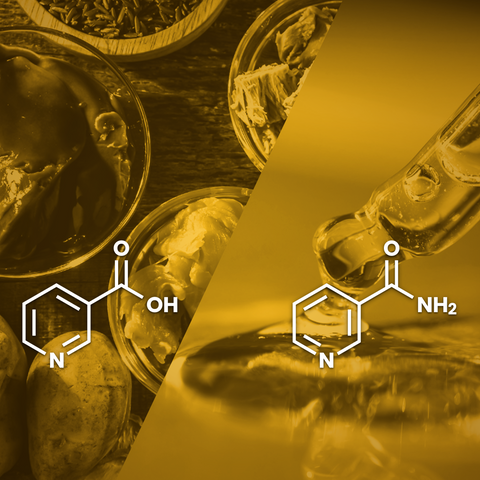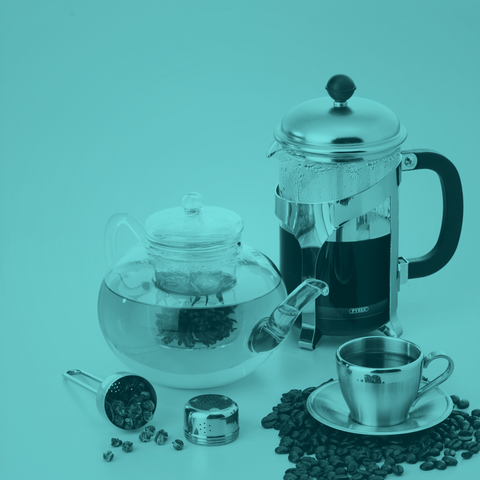In our fast-paced world, optimizing productivity has become a critical pursuit for professionals, students, and entrepreneurs alike. While traditional methods like time management and task prioritization remain valuable, cutting-edge research in cognitive science and neurobiology has unveiled novel approaches to enhancing our mental capabilities.
This article explores 5 evidence-based productivity hacks that leverage the latest advancements in nootropics, sleep science, and stress management to help you boost your productivity, help you stay focused, get things done, and achieve peak performance.
1. Harness the Power of Nootropics for Cognitive Enhancement
In recent years, nootropics have garnered significant attention for their potential to boost cognitive function and, consequently, productivity. These cognitive enhancers, often derived from natural compounds, work by modulating neurotransmitter systems, improving cerebral blood flow, or enhancing neuroplasticity [1].
One particularly promising nootropic combination includes methylene blue, caffeine, and nicotine. Methylene blue, a compound with a rich history in medicine, has been shown to enhance mitochondrial function and increase cerebral blood flow. This improved energy metabolism in the brain can lead to enhanced cognitive performance and sustained attention.
Caffeine, a well-known stimulant, works synergistically with methylene blue by increasing alertness and improving reaction times. Meanwhile, nicotine, when used in controlled doses, has demonstrated cognitive-enhancing effects, particularly in areas of attention and working memory.
The combination of these three compounds in precise ratios, as found in products like Blue Cannatine, can provide a significant boost to productivity. Users report experiencing improved focus, increased energy, and enhanced mental clarity for several hours after administration.
It's important to note that while these nootropics show promise, their effects can vary among individuals. Additionally, the method of administration plays a crucial role in their efficacy. Buccal troches, for instance, allow for rapid absorption through the oral mucosa, potentially leading to a faster onset of cognitive enhancement than traditional oral supplements.
2. Optimize Your Sleep for Maximum Productivity
While it might seem counterintuitive to focus on sleep when discussing productivity, the quality and quantity of our rest profoundly impact our cognitive performance. Research has consistently shown that sleep deprivation negatively affects attention, working memory, and decision-making abilities [2].
Optimizing sleep involves more than just allocating enough time for rest. The quality of sleep, particularly the amount of deep sleep and REM sleep, plays a crucial role in cognitive restoration and memory consolidation [3]. To enhance sleep quality, consider the following strategies:
- Maintain a consistent sleep schedule
- Create a relaxing bedtime routine
- Optimize your sleep environment (dark, quiet, and cool)
- Limit exposure to blue light before bedtime
Additionally, certain natural compounds can help improve sleep quality. For instance, GABA (gamma-aminobutyric acid) is an inhibitory neurotransmitter that promotes relaxation and reduces anxiety [4]. Melatonin, a hormone naturally produced by the pineal gland, regulates the sleep-wake cycle and has been shown to improve sleep onset and quality when taken as a supplement.
Innovative sleep-enhancing products, such as Tro Zzz, combine these natural compounds with other sleep-promoting ingredients. By improving sleep quality, these formulations can lead to enhanced cognitive performance and productivity the following day.
3. Master Stress Management for Sustained Focus
Chronic stress is a significant barrier to productivity, impairing cognitive function and decision-making abilities [5]. While some levels of stress can be motivating, excessive stress leads to burnout, decreased performance, and wasted time. Therefore, effective stress management is crucial for maintaining high productivity levels.
One promising approach to stress management involves the use of adaptogenic compounds and anxiolytic substances. Adaptogens are natural substances that help the body resist stressors of all kinds, whether physical, chemical, or biological [6]. Some well-researched adaptogens include:
- Rhodiola rosea: Known to reduce fatigue and enhance mental performance under stress [7]
-
Ashwagandha: Shown to reduce cortisol levels and improve stress resistance [8]
- L-theanine: An amino acid found in tea that promotes relaxation without sedation [9]
Cannabinoids, particularly CBD (cannabidiol), have also gained attention for their anxiolytic properties. CBD interacts with the endocannabinoid system, potentially reducing anxiety and improving focus under stressful conditions [10].
Products like Tro Calm combine these stress-reducing compounds to help users maintain a state of calm focus. By modulating the stress response, these formulations can help maintain cognitive clarity and sustained productivity, even in high-pressure situations.
It's worth noting that while these compounds show promise in managing stress, they should be used as part of a comprehensive stress management strategy that includes lifestyle modifications such as regular exercise, mindfulness practices, and proper nutrition.
4. Leverage the Science of Breaks and Microdosing
Contrary to the common belief that nonstop work leads to higher productivity, research has shown that strategic breaks are essential for maintaining peak cognitive performance throughout the day [11]. The human brain operates in cycles of high and low attention, typically lasting around 90 minutes. This phenomenon, known as the ultradian rhythm, suggests that regular breaks can help reset our focus and prevent mental fatigue [12].
To optimize your break schedule:
- Take short breaks (5-15 minutes) for every 60-90 minutes of focused work.
- Use breaks for activities that replenish mental energy, such as brief meditation or light physical exercise.
- Practice the Pomodoro Technique: 25 minutes of focused work followed by a 5-minute break.
Interestingly, the concept of microdosing aligns well with this cyclical nature of cognitive performance. Microdosing involves taking sub-perceptual doses of cognitive enhancers at regular intervals throughout the day. This approach aims to maintain a steady level of cognitive enhancement without overwhelming the system or causing significant side effects [13].
The practice of microdosing has gained popularity in recent years, particularly with substances like psilocybin and LSD. However, legal and safer alternatives exist in the form of nootropic compounds. For instance, microdosing caffeine or nicotine (in controlled, small amounts) has been reported to provide sustained cognitive benefits without the jitters or crashes associated with larger doses [14].
Innovative delivery systems, such as buccal troches, offer a convenient way to implement microdosing strategies. These dissolve slowly in the mouth, providing a steady release of active compounds. This controlled delivery can help maintain a consistent level of cognitive enhancement throughout the day.
It's crucial to note that, while microdosing shows promise, more research is needed to fully understand its long-term effects. Additionally, the optimal microdose can vary significantly between individuals, so careful self-monitoring and potentially professional guidance are advisable when exploring this approach.
By combining strategic breaks with carefully timed microdoses of cognitive enhancers, it's possible to maintain high levels of productivity throughout the day while minimizing mental fatigue and burnout.
5. Integrate Physical Activity and Mindfulness Practices
While cognitive enhancers and optimized work schedules can significantly boost productivity, it's crucial to recognize the role of holistic wellness in maintaining peak performance. Integrating regular physical activity and mindfulness practices into your daily routine can dramatically enhance cognitive function and overall productivity [15].
Physical Activity:
Even short bursts of exercise can have immediate positive effects on cognitive performance. A study published in the British Journal of Sports Medicine found that just 10-40 minutes of moderate physical activity can enhance cognitive function, particularly in areas of memory, planning, and problem-solving [16]. To incorporate more movement into your workday:
- Take brief walking breaks between tasks
- Use a standing desk for part of your day
- Practice desk exercises or stretches
- Consider "walking meetings" for phone calls or brainstorming sessions
Mindfulness Practices:
Mindfulness meditation has been shown to improve attention, reduce stress, and enhance overall cognitive performance [17]. Regular mindfulness practice can lead to structural changes in the brain, particularly in regions associated with self-awareness, compassion, and introspection [18]. To integrate mindfulness into your productivity routine:
- Start your day with a short meditation session (5-10 minutes)
- Practice mindful breathing during short breaks
- Use mindfulness apps for guided sessions
- Incorporate mindful eating during lunch breaks
The synergy between physical activity, mindfulness, and cognitive enhancers can create a powerful productivity boost. For instance, engaging in a short bout of exercise or meditation before using a nootropic product like Blue Cannatine could potentially enhance its effects.
Conclusion
In our quest for enhanced productivity, science offers us a multifaceted approach that goes beyond traditional time management techniques. We can achieve sustained high performance by harnessing the power of nootropics, optimizing our sleep, managing stress effectively, leveraging strategic breaks and microdosing, and integrating physical activity and mindfulness practices.
It's important to remember that productivity is not about pushing ourselves to the limit, but rather about finding a sustainable balance that allows us to perform at our best consistently. The 5 hacks discussed in this article provide a comprehensive framework for enhancing cognitive function and maintaining peak productivity.
As with any approach to personal optimization, individual responses may vary. It's advisable to introduce these strategies gradually, paying close attention to how your body and mind respond. Consulting with healthcare professionals, especially when considering nootropic use, can ensure that you're taking a safe and personalized approach to productivity enhancement.
By combining cutting-edge cognitive science with time-tested wellness practices, we can unlock our full potential and navigate the demands of our fast-paced world with greater ease and efficiency.
References
[1] Malík, M., & Tlustoš, P. (2022). Nootropics as Cognitive Enhancers: Types, Dosage and Side Effects of Smart Drugs. Nutrients, 14(16), 3367. https://doi.org/10.3390/nu14163367.
[2] Zimmerman, M. E., Benasi, G., Hale, C., Yeung, L. K., Cochran, J., Brickman, A. M., & St-Onge, M. P. (2024). The effects of insufficient sleep and adequate sleep on cognitive function in healthy adults. Sleep health, 10(2), 229–236. https://doi.org/10.1016/j.sleh.2023.11.011.
[4] Guimarães, A. P., Seidel, H., Pires, L. V. M., Trindade, C. O., Baleeiro, R. D. S., Souza, P. M., Silva, F. G. D. E., Coelho, D. B., Becker, L. K., & Oliveira, E. C. (2024). GABA Supplementation, Increased Heart-Rate Variability, Emotional Response, Sleep Efficiency and Reduced Depression in Sedentary Overweight Women Undergoing Physical Exercise: Placebo-Controlled, Randomized Clinical Trial. Journal of dietary supplements, 1–15. Advance online publication. https://doi.org/10.1080/19390211.2024.2308262.
[6] Liao, L. Y., He, Y. F., Li, L., Meng, H., Dong, Y. M., Yi, F., & Xiao, P. G. (2018). A preliminary review of studies on adaptogens: comparison of their bioactivity in TCM with that of ginseng-like herbs used worldwide. Chinese medicine, 13, 57. https://doi.org/10.1186/s13020-018-0214-9.
[7] Darbinyan, V., Kteyan, A., Panossian, A., Gabrielian, E., Wikman, G., & Wagner, H. (2000). Rhodiola rosea in stress induced fatigue--a double blind cross-over study of a standardized extract SHR-5 with a repeated low-dose regimen on the mental performance of healthy physicians during night duty. Phytomedicine : international journal of phytotherapy and phytopharmacology, 7(5), 365–371. https://doi.org/10.1016/S0944-7113(00)80055-0.
[8] Singh, N., Bhalla, M., de Jager, P., & Gilca, M. (2011). An overview on ashwagandha: a Rasayana (rejuvenator) of Ayurveda. African journal of traditional, complementary, and alternative medicines : AJTCAM, 8(5 Suppl), 208–213. https://doi.org/10.4314/ajtcam.v8i5S.9
[9] Nobre, A. C., Rao, A., & Owen, G. N. (2008). L-theanine, a natural constituent in tea, and its effect on mental state. Asia Pacific journal of clinical nutrition, 17 Suppl 1, 167–168.
[10] Blessing, E. M., Steenkamp, M. M., Manzanares, J., & Marmar, C. R. (2015). Cannabidiol as a Potential Treatment for Anxiety Disorders. Neurotherapeutics : the journal of the American Society for Experimental NeuroTherapeutics, 12(4), 825–836. https://doi.org/10.1007/s13311-015-0387-1.
[11] Ariga, A., & Lleras, A. (2011). Brief and rare mental "breaks" keep you focused: deactivation and reactivation of task goals preempt vigilance decrements. Cognition, 118(3), 439–443. https://doi.org/10.1016/j.cognition.2010.12.007.
[12] Rossi, E.L. & Nimmons, D. (1991) The 20-Minute Break: Using the New Science of Ultradian Rhythms. Los Angeles: Jeremy P. Tarcher, Inc. Reviewed by: George Gafner, LCSW, Southern Arizona Veterans Affairs Health Care System, Tucson, AZ. (2005). American Journal of Clinical Hypnosis, 48(2–3), 217–218. https://doi.org/10.1080/00029157.2005.10401520
[14] Petranker, R., Anderson, T., Maier, L. J., Barratt, M. J., Ferris, J. A., & Winstock, A. R. (2022). Microdosing psychedelics: Subjective benefits and challenges, substance testing behavior, and the relevance of intention. Journal of psychopharmacology (Oxford, England), 36(1), 85–96. https://doi.org/10.1177/0269881120953994.
[15] Ratey, J. J., & Loehr, J. E. (2011). The positive impact of physical activity on cognition during adulthood: a review of underlying mechanisms, evidence and recommendations. Reviews in the neurosciences, 22(2), 171–185. https://doi.org/10.1515/RNS.2011.017.
[17] Zeidan, F., & Vago, D. R. (2016). Mindfulness meditation-based pain relief: a mechanistic account. Annals of the New York Academy of Sciences, 1373(1), 114–127. https://doi.org/10.1111/nyas.13153.
[18] Hölzel, B. K., Carmody, J., Vangel, M., Congleton, C., Yerramsetti, S. M., Gard, T., & Lazar, S. W. (2011). Mindfulness practice leads to increases in regional brain gray matter density. Psychiatry research, 191(1), 36–43. https://doi.org/10.1016/j.pscychresns.2010.08.006.







Comments (0)
There are no comments for this article. Be the first one to leave a message!